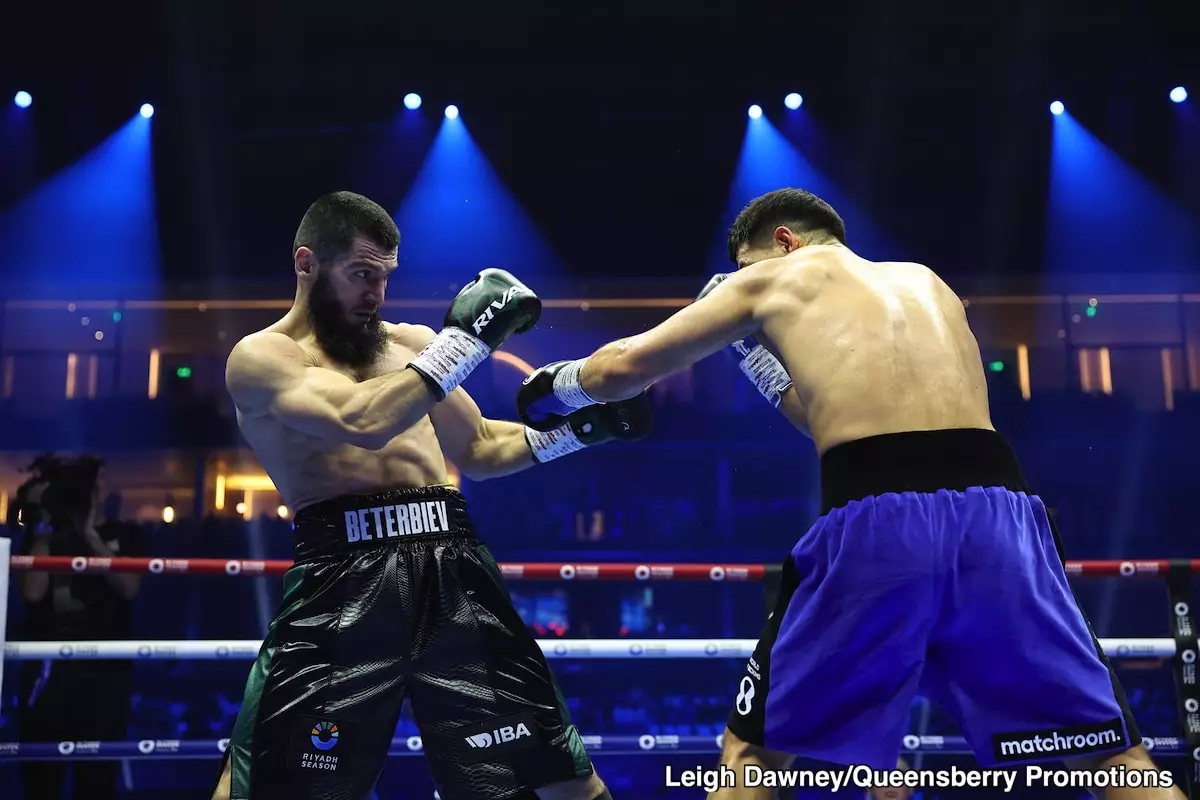Boxing has always been a sport defined by rivalries and high-stakes matches that capture the imagination of fans around the world. Recently, the spotlight has turned toward two of the sport’s biggest names, Canelo Alvarez and Artur Beterbiev, following Beterbiev’s hard-fought victory over Dmitry Bivol to claim the undisputed light heavyweight championship. Ryan Garcia’s reflections on the match have reignited discussions about whether Canelo could conquer Beterbiev, a match-up many boxing aficionados have long awaited.
Canelo Alvarez, widely regarded as one of boxing’s elite, has consistently impressed with his technique and striking ability. However, his strategic choices in opponents raise questions. When moving up to the light heavyweight division in 2019, he opted to challenge Sergey Kovalev, who was considered a more manageable opponent at that time. This decision, coupled with his subsequent foray into the same division against Bivol, but not against Beterbiev, fuels speculation about whether Canelo is avoiding a fight that could test his limits. In essence, while Canelo seeks glory and titles, his reluctance to confront Beterbiev suggests a cautious approach, perhaps stemming from an awareness of the Russian’s formidable power and relentless fighting style.
Garcia’s assertion that Canelo now sees Beterbiev as a viable threat reflects a broader sentiment among boxing enthusiasts. Beterbiev, with an impressive record of 21 wins and 20 knockouts, poses an immense challenge for anyone who steps into the ring against him. For Canelo to solidify his legacy in the sport, a clash with Beterbiev seems almost inevitable, but it would require a great deal of courage and self-belief.
Dmitry Bivol’s recent loss to Beterbiev served as a study in contrasting styles. Bivol, known for his dexterous footwork and defensive prowess, seemed to follow an amateur-inspired strategy that ultimately fell short. Many observers noted that while Bivol executed a hit-and-move approach, it lacked the aggression needed to sway judges. Instead of taking risks, he appeared content to edge out a decision, an approach that ultimately came back to haunt him as Beterbiev pressed the action, consistently moving forward and looking for openings.
Garcia’s dismissal of Bivol’s passive tactics reinforces the idea that in boxing, taking the initiative can often be more rewarding than playing it safe. Bivol’s desire to avoid being hit cost him the match, leading some fans to label the decision a “robbery.” It’s worth noting that the judges awarded a split decision in favor of Beterbiev, emphasizing that a merely defensive strategy, while it can be effective, may not hold up against a more confident and aggressive fighter.
Should Canelo choose to face Beterbiev, the match would undeniably be a blockbuster event, with much more than titles on the line. It would represent a crucial moment in Canelo’s career; escalation to 175 pounds brings the risk of receiving powerful shots from a notoriously heavy-handed puncher. Since Beterbiev’s style thrives on pressure and aggression, Canelo would likely need to adapt and be ready to engage in a much more daring manner—essentially playing Beterbiev’s game.
What contributes to the excitement of this potential match is that Canelo, with his remarkable speed and ring intelligence, could bring an engaging dynamic to the fight. Yet, it would necessitate a distinct shift from the tactics he employed against Bivol, who utilized a defensive strategy. Canelo’s skill set easily allows him to compete both offensively and defensively, meaning he must engage in direct exchanges without sacrificing his safety to avoid Beterbiev’s power.
The current state of boxing reveals a critical juncture as tensions brew between heavyweights of contrasting styles. While Canelo Alvarez must wrestle with a cautious approach against notably tough opponents like Artur Beterbiev, it is a bold choice that must come with the recognition that only by taking these risks can a fighter leave a mark in boxing history. Ryan Garcia’s insights underline the complexity of decision-making in boxing, illustrating how strategy intertwined with ambition forms the fabric of a boxer’s legacy. The fans await what can only be described as an electrifying collision course, as the future of boxing rests significantly on the choices made by its warriors.

